Participation invited – International Multicenter Retrospective Study
We are delighted to invite you to participate in the international study “Long-term outcomes of immunosuppression withdrawal after liver transplantation: An International Multicenter Retrospective Study”.
The study is promoted by the Steering Committee of the ILTS Immunology Special Interest Group and aims to define the long-term (5, 10,15 years) outcomes of liver transplant recipients who have undergone immunosuppression withdrawal after transplantation.
This retrospective, multicenter, international study will include adult and pediatric liver transplant recipients who discontinued immunosuppression for at least 12 months. Data regarding transplant, immunosuppression withdrawal and outcomes will be collected anonymously in a prospective dataset.
Immunosuppression withdrawal has been attempted in selected liver transplant recipients to reduce the drug-related risk of infectious and metabolic complications, malignancies, and drug-specific toxicity. After liver transplantation, immunosuppression withdrawal has been reported more frequently than after the transplantation of other organs due to the immune-privilege features of the liver.
Thirty years after the initial prospective clinical trials on immunosuppression weaning in liver transplant recipients, there is evidence that immunosuppression withdrawal is feasible and safe in selected patients after transplantation, but the long-term outcomes are as yet unknown. In order to attempt immunosuppression withdrawal after transplantation, transplant clinicians need to know the long-term benefits of immunosuppression withdrawal in liver transplant recipients. They also require practical tools that are both affordable and reproducible across centers.
Several centers worldwide follow patients who underwent immunosuppression withdrawal after liver transplant, within or outside of clinical trials, but these data have never been pooled in any analyses to achieve a large series of such a peculiar population.
To participate in the study, please contact the study coordinators: Roberta Angelico (roberta.angelico@uniroma2.it) and Manuel L. Rodríguez Perálvarez (h02ropem@uco.es).
All investigators enrolling patients in the study will be included as co-authors of future publications. For participating centers, the number of co-authors is defined accordingly to the number of patients enrolled in the study: 1 author for <5 patients, 2 authors for 5-20 patients, 3 authors for >20 patients).






